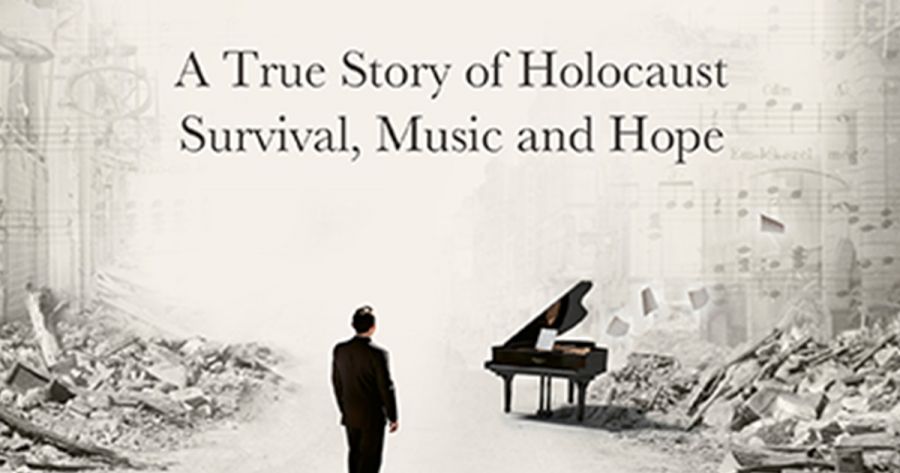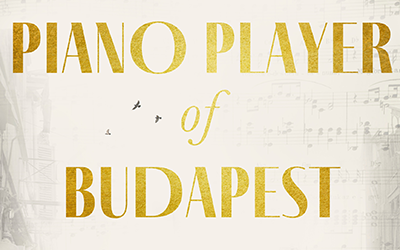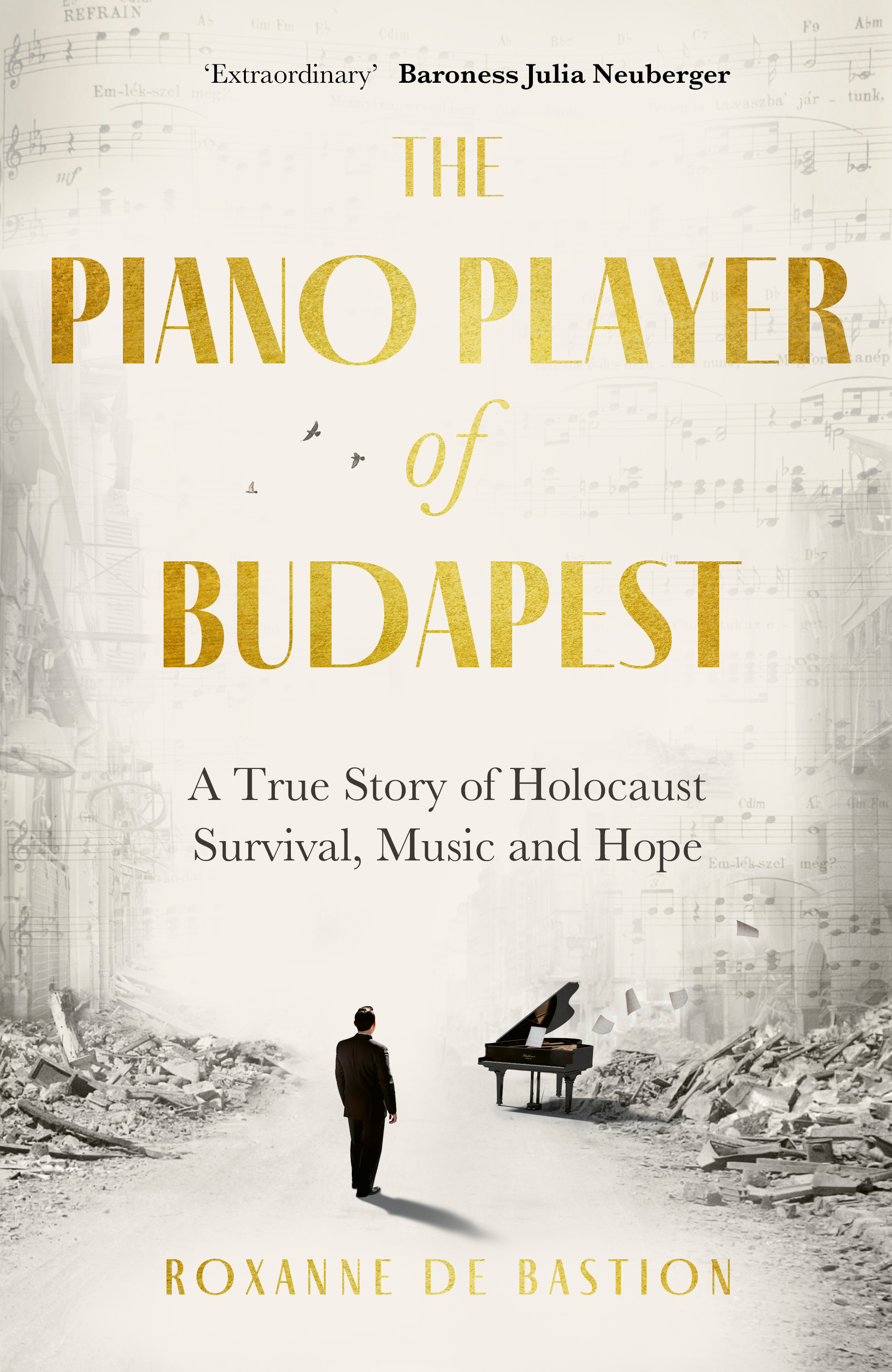
- Free Article: No
- Contents Category: Music
- Review Article: Yes
- Article Title: Dark times
- Article Subtitle: Without Brecht’s prescience
- Online Only: No
- Custom Highlight Text:
In the winter of 1937–38, Bertolt Brecht, a refugee from National Socialism, lived in furious exile in Svendborg, a small town on the Danish island of Funen. There he wrote and compiled a collection of poems under the working title ‘Gedichte im Exil’ (Poems in Exile). Sometime between galleys and the poet’s move to Sweden following the Munich Agreement, the book was renamed Svendborger Gedichte, the second section of which begins with a simple motto:
- Featured Image (400px * 250px):

- Alt Tag (Featured Image): Paul Kildea reviews ‘The Piano Player of Budapest’ by Roxanne de Bastion
- Book 1 Title: The Piano Player of Budapest
- Book 1 Biblio: Robinson, $34.99 pb, 268 pp
- Book 1 Cover Small (400 x 600):

- Book 1 Cover (800 x 1200):

In the final sentence of her touching family history, the singer-songwriter Roxanne de Bastion quotes Brecht’s motto, seemingly unknowingly. She is at a family reunion in Hungary, meeting relatives from Sweden, France, Australia, and Hungary, their profiles familiar where their personalities are not. Those present have talked much of de Bastion’s grandfather Istvan Bastyai Holtzer, who miraculously survived the worst the Axis powers could throw at him. At the end of dinner, she sits alongside her father at the hotel piano, the two of them joined by an Australian relative on violin. As they play one of her songs, de Bastion looks at the crowd and feels ‘overcome with a deep, primal feeling of peace and satisfaction, an ancestral sigh of relief that we are here and together. We exist and we’re singing.’
It is only following this encounter that de Bastion embarks on her book, 250 pages of her singing about unconscionably dark times. She is not the only one on pitch: this is a narrative knitted together from letters, diaries, interviews, and a sequence of cassette tapes her grandfather recorded in the last years of his life, reliving the years bookmarked by two catastrophic world wars. It is a memoir of European privilege, of high art and popular culture, and the inevitable downfall of a Jewish family in the shadow of National Socialism.
De Bastion writes well, never quite dispelling the impression that she can’t quite believe the extent of her grandfather’s suffering. A pianist and composer himself, Istvan (Stephen) is forging a successful career as a club musician and film composer when he is called up for military training in late 1939, only months after rejecting an opportunity to emigrate to America. Thereafter he suffers the privations of training, forced labour camps, imprisonment, long winter marches, near and real escapes, uncertainty about the fate of his family, emancipation from a concentration camp, repatriation, confrontation with the Soviets following their siege of Budapest, and finally his disgust at the postwar communist government that replaced that of the immoral Nazi puppet Berenc Szálasi.
It is one of the sadnesses of this book and of Stephen’s life that his loyalty to Hungary could be so egregiously betrayed time and again. In 1946, he is jailed on fabricated charges, since, as de Bastion explains, a criminal record was often given by the government as an excuse for not paying reparations. ‘I can tell you that in jail I was in the best of companies,’ Stephen says in one of his cassette tapes, a reference to the Jewish businessmen and distinguished countrymen with whom he shared a cell and fate. He soon thereafter moves to England, repelled by his country’s behaviour and the political path it was following.
Stephen does not come across as particularly likeable. He is prickly and proud, self-important, and at times an unreliable narrator (which his granddaughter acknowledges). He behaves monstrously towards his pregnant girlfriend (which his granddaughter does not acknowledge): ‘In normal circumstances, perhaps it would have been possible, but after a long deliberation, I decided to stay [in Switzerland] and not to marry Roszi.’ Roszi undergoes a late, illegal abortion – without Stephen’s knowledge, support, or even interest, so it seems – which leaves her hospitalised for weeks.
Such caveats aside, his is the story of European Jewry’s and Stephen’s unlikely survival. ‘What sort of people had we been?’ he asks at one point, answering that his family had been cultured and artistic, educated, Jewish, patriotic, though sadly without Brecht’s prescience. But in misfortune lies courage and invention, as Raoul Wallenberg and his Swiss confrère Carl Lutz – both here with walk-on parts – demonstrated. Stephen cuts out headshots from a family photo to forge papers for his parents. He tells of playing piano for Hungarian soldiers on a train from Kyiv to Budapest, the commanding officer having recognised him from pre-war days. He relays the occasion when a Nazi commander at the labour camp outside Mauthausen walked behind a long line of prisoners digging a trench, shooting every tenth man, the body of each slipping effortlessly into the new grave. Perhaps inevitably, in this camp he ‘acquired a very wide knowledge of looking at people’s faces and knowing in advance that this person is not going to make it’.
The other great survivor of the story is de Bastion’s piano, which was still standing in Stephen’s parents’ apartment when most of the façade and surrounding buildings were destroyed in the siege of Budapest. It is this piano that gives Stephen’s granddaughter her first musical experiences in addition to her narrative structure. The survival of this instrument and its role in her own emergence as a musician is a lovely story. For when she gathers with her many relatives from different corners of the world, she discovers that ‘without fail, each one of us has dedicated our lives to either music or humanitarian sciences, or a combination of the two’. Her singular touch is in excavating some of her grandfather’s music, recording it in new arrangements that show off her beautiful lyric voice. Yes, there is singing there.


Comments powered by CComment